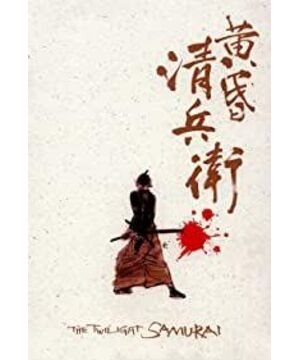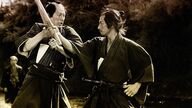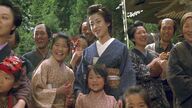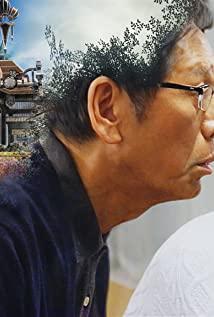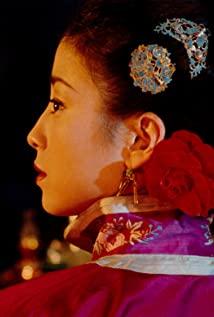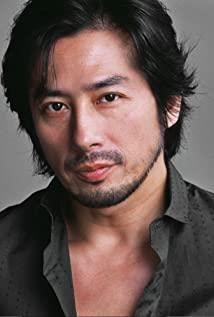Lines and Spaces in Japanese Cinema
The compositional aesthetics of Japanese films are of their own, and the most representative ones are the aesthetics of tatami and telephone poles.
Tatami has been in the movies for a long time. The telephone pole was introduced by Ozu. In the past, when the director made a movie outside the studio, he avoided filming the telephone pole, which was ugly. Ozu was the first to specially shoot the telephone pole.
The reason why Ozu photographed telephone poles is not because of the beauty of the poles, but because of the beauty of the lines of the poles. What Ozu pursues is the natural composition lines. In his eyes, the poles are just a few lines drawn from local materials.
Tatami and telephone poles are similar in that they are both filled with lines and closed at the same time. The most important role of lines in Japanese films is to express repression—repression of self, repression of family, repression of love, and repression of friendship.
Tatami should be the most suitable building for indoor scenes. I just watched "The Qingbingwei at Dusk", the last parting scene, the heroine Pengjiang and Qingbingwei have a mutual affection, and Qingbingwei is about to die again, which is depressing. Therefore, the foreground in the first picture is filled with the vertical lines of the tatami, making the two of them cramped. At the same time, the tatami doors on the left and right present a framed composition, framing the two, and a vertical line between them. separated.
In the next shot, Qingbingwei finally broke free from the shackles of values and expressed his love. The vertical line in the foreground and the vertical line between the two disappeared like magic. At the same time, because the previous camera was placed behind the tatami, it did not receive the reflection from the wall on the left. This lens received the light from the wall again, and the whole picture became brighter. At the same time, an occlusion appeared at the bottom of the screen, which further highlighted the overall sense of the two getting closer.
Another shot, in fact, paid tribute to Ozu in disguise. Pengjiang told Qingbingwei that he was married, and Qingbingwei hoped to be empty again, so he got up. This is also one of the tragedies of this film - when the material conditions allowed before Qingbingwei (Pengjiang was unmarried), the values failed to change, so they failed to seize the opportunity to get married. Now the values have changed, but the material conditions do not allow it. In the words of ancient Chinese poetry, it is "the young and the strong do not work hard, and the boss is sad". So the vertical line in the foreground reappeared, and the two of them were not even just a vertical line as usual, but became a barrier for an entire open space. At the same time, the entire picture is darkened again due to underexposure due to foreground occlusion. The depth of the whole composition is very obvious and independent.
At the same time, in these few shots, the foreground, middle, and background were all packed, and even the space was opened to release a little outside space. This is the aesthetics of tatami, layer upon layer, the space is randomly cut and reorganized, and the film is to use the space to narrate.
I remember Laomouzi's "Hero", which was criticized as a big dye vat. Among them, there is a section of Liang Chaowei entering the Qin Palace. As a result, the Qin Palace was hung with a pile of green cloth. Liang Chaowei and Chen Daoming were fighting in the palace. A martial arts chase scene was actually ambiguous. It was actually the cutting and lines of the space. caused effect. I seriously suspect that this is the "tatami aesthetics" that the national teacher has learned from watching Japanese masters' movies for a long time, but he couldn't let Qin Wang live in the tatami, so he had to find a few pieces of green cloth to hang it. The cutting off the green cloth may be inspired by the sword and halberd pieces that cut off the tatami door. When the straight line of the tatami becomes the curve of the silk blown by the wind, it is quite different.
Mediocrity and Defiance
Let's go back to "Qingbingwei".
As we all know, Hollywood movies, especially the classic Hollywood period, are full of "male gaze". The male gaze is a rather complex proposition, in short, "man looking at woman". Let the audience act as the audience's point of view after empathizing with the males in the film, and cast a lustful gaze on the blondes in the film. The traditional "gazing" is often small and medium-sized scenes. In modern times, the "female gaze" has developed in Korean dramas. It is often a female-oriented Korean drama that makes the audience empathize with the heroine and then look at the handsome guy.
In this film, Yoji Yamada played the traditional Hollywood discussion, transplanting the "male gaze" to the male protagonist, which is not the first, and the famous play is "The Truman World". In the film, Seibei is often placed in the center of the frame, facing the camera, while the other characters have their backs to the camera. In this film, Kiyobei is placed in a position to be looked at like the blonde in Hollywood movies, and the other characters in the film are the audience's point of view to observe Kiyobei himself and the people he represents. Values, the audience and several foreign characters are one, looking at the "heterogeneous" in the era of Qingbingwei, each role and contradiction is to stimulate the response of Qingbingwei, to enrich his role, just like when he was a child Squat on the ground and poke the frog with a branch and watch his reaction for fun. In a sense, this is a "spectacle" movie, and Qingbingwei is a spectacle viewed by the audience with contemporary eyes.
"Wonders" are myths. This film takes place in ancient times, but it is actually a contemporary myth. Qingbingwei is the idealized personality of contemporary people. The current idealized personality was eliminated in the previous era; Confucius pursued the previous era The Tao of Yao and Shun, in fact, the era that still preserves the "li" is only a hundred or two hundred years away from him. Everyone has a dream of the Silver Age. He is the myth of his era, and the myth is a resistance to the current mediocrity. Confucius's resistance to mediocrity is to pursue the mainstream values abandoned in the previous era-the idealism that the era has proved that the Tao of Yao and Shun is useless in troubled times. Just like the meaning of Qingbingwei to the audience, we see the soldiers clearly, and it is to enter the mainstream values before modernity - even if it has been proved to be idealism. The struggle against mediocrity is largely the pursuit of idealism.
The resistance to mediocrity is actually the resistance to the mainstream values in the living environment - Qingbingwei's colleagues are like the current workplace people, drinking and enjoying themselves after get off work every day, complaining that they live a social life, and at the same time, they are in the face of great changes. , they represent a value, which is the mainstream value in the environment in which the Qingbei lives. The value of Qingbingwei is a conservative value, not fond of fame, and retains traditional moral conduct. The resistance of Qingbingwei is his collision with the mainstream values, and he maintains himself under the mainstream values. This is the current resistance to mediocrity. So this is a hero film. The so-called hero is not about how much he can play and how much he achieves, but his values are different enough to be a role model for others.
In commercial films, resistance to mediocrity is the most important proposition. The earliest resistance appeared in Western films, which were about heroic myths, and cowboys were generally loved. The current hero films are all anti-heroes, and they become heroes when they are spurned by others. In fact, the current values are "holding up to oneself", not joining in with others, and being loved by others is tacky, and that is mediocrity. Just like Qingbingwei being cast aside by his colleagues is a hero. Qingbingwei is different from Daliu. This is resistance. In fact, I re-watched "Master" some time ago. Chen Shi and Qingbingwei are similar in that they both resist mediocrity and are essentially developed from Western films.
love in narrative
The most touching thing in the film is the relationship between Pengjiang and Qingbingwei. The relationship between Pengjiang and Qingbingwei actually happened in the second half hour. First, Qingbingwei refused to get married. Later, after pressure from the play, Qingbingwei's values broke out, and finally got rid of the restraint of himself and proposed to Pengjiang. , and it turned out that Pengjiang was engaged, so he went to death with despair.
In fact, at this time, Qingbingwei had already been killed in the narrative of the relationship between the two sexes. If he went to a duel again, according to the conventional play, he should actually die "physically" again.
Why is it said that Qingbingwei has been killed in the narrative at this time? Qingbingwei presents an "idealized personality" throughout the film, and there are actually no positive characters in the whole film. All the characters are negative characters, all of them are forcing Kiyobei to change his values - Iinuma asked him to go to Edo to fight for fame and fortune, his daughter's mother needed him to find money to support him, the lord ordered him to draw a sword, and Pengjiang asked him to give up his old class Values marry themselves.
Which of them has the most "stress"? It is Pengjiang. Why is it called Pengjiang? Because other pressures are a current pressure, and Pengjiang is actually a pressure brought about by new values.
Pengjiang is actually a "modern woman" in this film. She talks about equality between men and women and free love. It can be said that she is a modern person who has traveled back. Qingbingwei is an ancient ideal personality. Pengjiang will fall in love with Qingbingwei, which is actually the motive for making this film. Modern people fall in love with the ideal personality of the ancient times, so the audience will fall in love with Qingbingwei.
But Pengjiang's love for Qingbingwei is the most deadly, because if Qingbingwei and Pengjiang combine, he will lose his "ancient ideal personality", then Pengjiang or the audience has any reason to like it What about Qingbingwei?
As a heroic film, the most important thing in this film is "heroic spirit". What is heroic spirit? Heroism is the hero's adherence to values. If Qingbingwei finally unites with Pengjiang, it means that he doesn't stick to it, that is, there is no "heroic spirit".
Qingbingwei finally confessed to Pengjiang that it was actually a reveal of human nature under the "idealized personality". Instead, it appeared that the character was real and aroused empathy from the audience, so the audience could not pursue the matter of "ideal personality collapse". This is the usual playwriting technique. Most Hollywood movies also talk about "principles" at the beginning, and then only talk about "empathy".
Qingbingwei's confession represents the loss of "heroic spirit", and his "idealized personality" is also lost. Therefore, when Qingbingwei confesses, he has already been killed in narrative. Of course, from On another level, this is something called "sublimation" or "rebirth".
It is actually very clear here that this is a modern film. The emotional obstacle between Pengjiang and Qingbingwei lies in the differentiation of values, which was actually impossible in ancient times. In the genre films of the last century, most of the barriers between men and women in love are "patriarchy" or "class". The contradiction between Romeo and Juliet is "patriarchy", the parents of the two families are enemies, so the two cannot be together. The contradiction between Rou Si and Jack in "Titanic" is "class", Rou Si is the eldest lady, and Jack is the poor boy. Why are there no more remakes of "Romeo and Juliet" or "Titanic" now? Because these two are the products of the pursuit of free love, and they express the pursuit of free love. The current love is too free. "Patriarchy" does not allow it? Two people can elope; "Class" does not allow it? So many people are now crossing classes through marriage.
The contradiction between Pengjiang and Qingbingwei is a modern contradiction, a contradiction in free love-the values of the two are different, and free love is difficult to achieve. And in fact, this thing is unsolvable, because what Pengjiang loves is the "idealized ancient personality" of Qingbingwei. If Qingbingwei's personality values change, it is not the Qingbingwei that Pengjiang loves. If it does not change, The two are doomed not to be together. Pengjiang's "engagement" is actually just an externalization of the text. At the root, the two are the conflict of values. Yamada's secondary expression is the dilemma of this modern love. Qingbingwei confessed, but what he got was that Pengjiang was married, which was "physically" killed - Qingbingwei's compromise to modern values did not exchange for Pengjiang's love, because Pengjiang loved him who was uncompromising. At this time, Qingbingwei should have lost all his thoughts, lost his values, and did not find beauty. When he went to a duel at this time, he was actually going to beg for death.
But the play reversed again, and the people he killed also "begged to die". This is the film's portrayal of the samurai class-two samurai duel, and the result is "begging to die", which is absurd. If it is too complicated to explain, it will not be listed here, and we will return to Qingbingwei and Pengjiang.
The end of the film. The Qinghei came back in a twilight and sunset - my God, he's not dead! Pengjiang, who originally thought he was dead, and his daughters came out to greet him, and the film reached another climax here. If the parting scene is the climax of "principle", then the climax after the reunion is "together". The climax of "Love", after two hours, the audience has become Pengjiang, the modern man in the film, and he is naturally happy to see that his husband is not dead. As for things in principle, fuck shit.
In fact, if the film comes to an abrupt end at the parting place, it is actually perfect. The aftertaste of the climax has not dissipated, and the audience will still chew with relish when they leave the theater. And the later duel scene seems a little out of tune with the style of the whole film, and the whole scene has a hint of absurdity and banter. Then if the duel scene is absurd, then the reunion scene is absurd, how can a person who was killed narratively come back?
The daughter's monologue at the end quickly came out to round up the "reunion" - "Our peaceful days are only three years, and soon my father died in the war of the curtain." (Suddenly like "Sorrowful City"). The meaning of the daughter is: "The reunion is just to give emotional comfort to the empathetic audience, and my father is still going to die." This is also the usual way of current hero films, and the end should bring everyone back to reality. At the end of the film, there are repeated reminders of Qingbei's death, especially "killed by a cannon", which is symbolic. In fact, it makes everyone feel melancholy instead of yearning. After all, one of the core values of commercial films is "people should look forward".
All in all, this is a self-conscious contemporary genre film, and I give it an 8 out of 10. It is very rounded, but not sharp.
View more about The Twilight Samurai reviews


